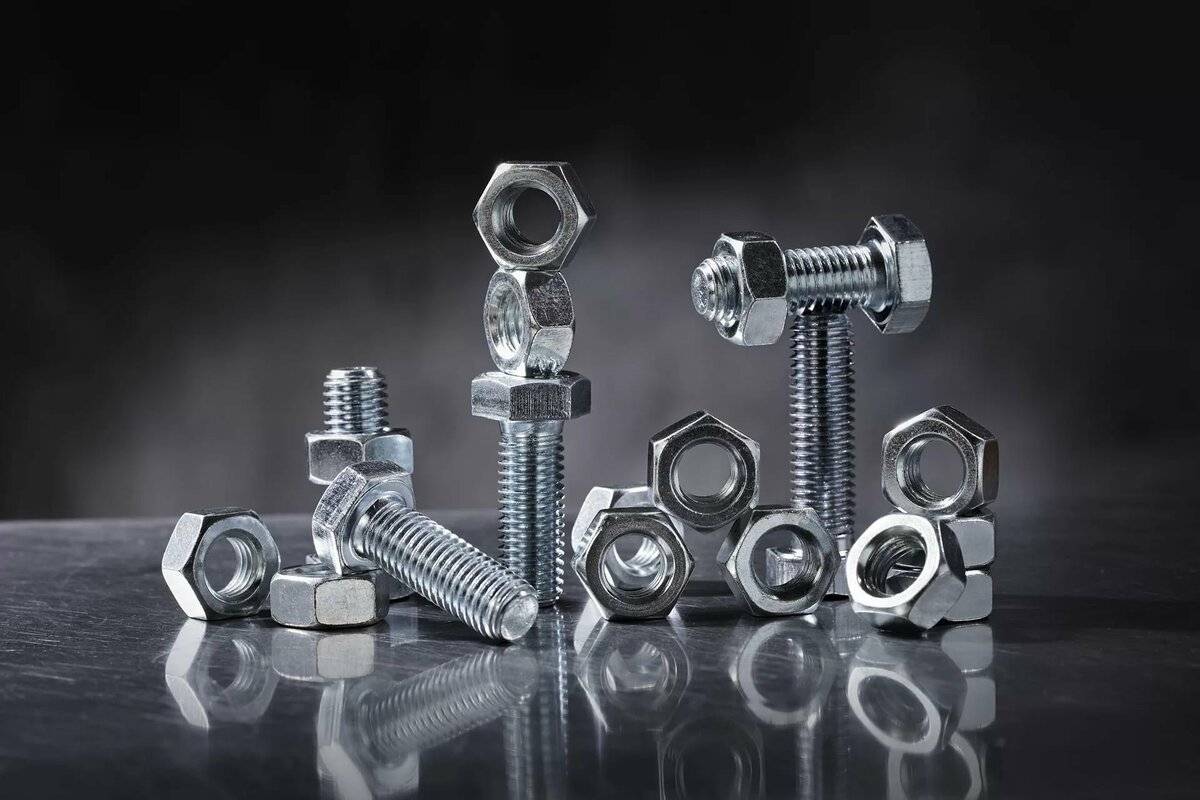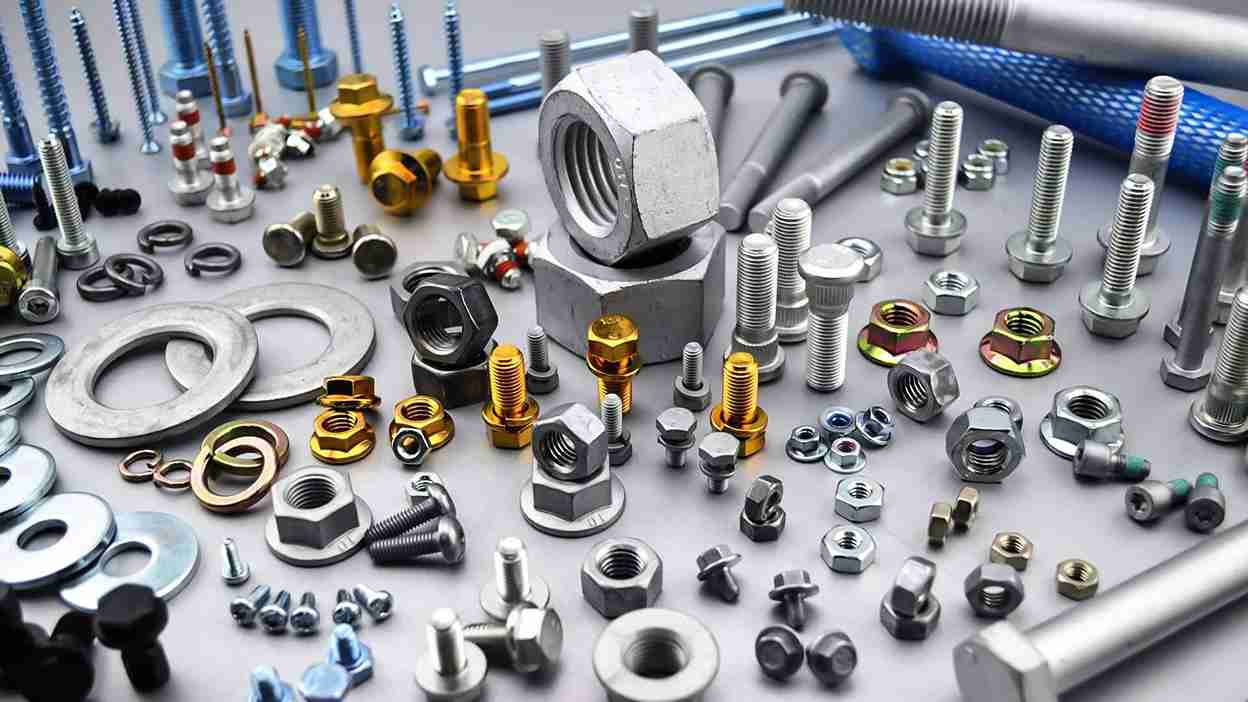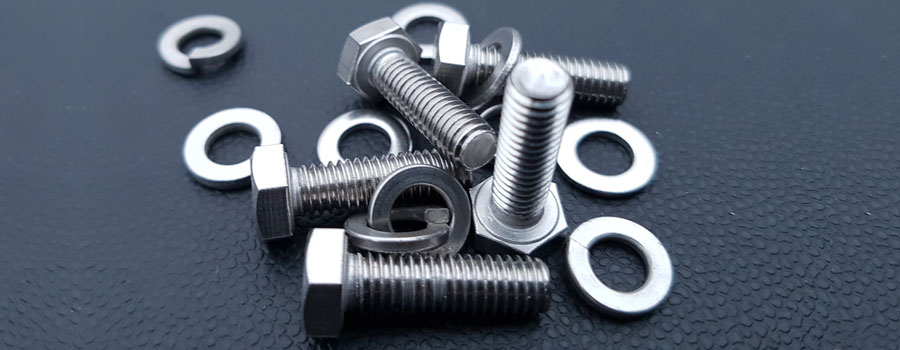Welcome to Sheetal Industries, a distinguished name in the
realm of fastener manufacturers in India. With an unwavering commitment to excellence and a rich
legacy spanning decades, we have emerged as a frontrunner in the industry, setting benchmarks
for quality, innovation, and customer satisfaction....
At Sheetal Industries, we take pride in our
state-of-the-art manufacturing facilities, equipped with cutting-edge technology and
operated by a skilled team of professionals. Our extensive range of fasteners showcases
precision engineering and adherence to the highest industry standards. As one of the leading
fastener manufacturers in India, we cater to diverse sectors, including automotive,
construction, infrastructure, and more.
Our success is rooted in a customer-centric approach,
where we prioritize understanding and meeting the unique requirements of our clients. By
consistently delivering products of uncompromising quality, we have built lasting
relationships and earned the trust of customers nationwide.
Sheetal Industries is not merely a manufacturer; we are
a solution provider, offering customized fastening solutions to meet the evolving needs of
our clients. Our commitment to sustainability, innovation, and reliability positions us as a
preferred choice among discerning customers seeking top-tier fastener manufacturers in
India.
What is a Fastener?
A fastener is a hardware device designed to
mechanically join or affix two or more objects together, typically to create a secure and
stable connection. These essential components play a crucial role in various industries and
everyday applications, providing structural integrity and support. Fasteners come in a wide
range of forms, shapes, and sizes, each tailored to specific needs and materials.
Common types of fasteners include screws, bolts, nuts,
washers, rivets, and pins. Each type serves a unique purpose, from holding components in
place to providing tension or compression strength. Fasteners are utilized across diverse
sectors such as construction, automotive, aerospace, and manufacturing, where their
reliability and performance are vital for the integrity and safety of structures and
products.
Materials used in fastener manufacturing vary based on
the application's requirements, with common choices including steel, aluminum, brass, and
plastic. Additionally, fasteners can be categorized based on their threading (e.g., coarse
or fine threads), head type (e.g., flat, pan, or hex), and drive type (e.g., Phillips,
slotted, or hexagonal).
Types of Fasteners and their Uses
Fasteners are essential components used to join or
secure two or more objects together. They play a crucial role in various industries,
construction, automotive, and everyday applications. Fasteners come in a wide range of
types, each designed for specific purposes. Here are some common types of fasteners:
1. Screws:
Screws are versatile fasteners with threaded shafts
that engage with matching threads in the material they are being screwed into. They come in
various types, such as wood screws, machine screws, and self-tapping screws. Screws are
widely used in woodworking, metalworking, and assembling electronic devices.
2. Nuts and Bolts:
Nuts and bolts form a classic combination for
fastening. Bolts are threaded rods with a head, and nuts are threaded components that screw
onto bolts to create a strong joint. This combination is prevalent in construction,
automotive assembly, and machinery.
3. Washers:
Washers are flat, disc-shaped fasteners with a hole in
the center. They are placed between the head of a bolt or a nut and the surface of the
material to distribute pressure and prevent damage. Washers are available in various
materials, including metal and plastic.
4. Rivets:
Rivets are permanent fasteners used to join two or more
pieces of material. They consist of a cylindrical shaft with a head on one end. Rivets are
commonly employed in aerospace, construction, and automotive industries where a strong,
vibration-resistant connection is required.
5. Anchors:
Anchors are fasteners used to attach objects to a base
material, often concrete or masonry. They are crucial in construction for securing
structures and in various applications where a strong foundation is necessary.
6. Clips and Clamps:
Clips and clamps are fasteners designed to hold objects
together without the need for threaded components. They are often used in automotive,
woodworking, and manufacturing industries for securing hoses, cables, and panels.
7. Pins:
Pins are cylindrical fasteners without threads. They
are used for alignment, coupling, or securing objects temporarily. Examples include dowel
pins, cotter pins, and hitch pins.
Material Used for Making Fasteners
The choice of material for making fasteners is crucial
as it directly influences the performance, strength, and durability of the fastening system.
Various materials are employed in the manufacturing of fasteners, each selected based on
their mechanical properties, corrosion resistance, cost, and application requirements. Here
are some common materials used for making fasteners:
1. Steel:
Steel is one of the most widely used materials for
fasteners due to its strength, durability, and cost-effectiveness. Carbon steel, alloy
steel, and stainless steel are common types of steel used. Carbon steel fasteners are strong
but may be susceptible to corrosion. Alloy steel provides improved strength and toughness,
while stainless steel offers excellent corrosion resistance, making it suitable for
applications where exposure to moisture is a concern.
2. Stainless Steel:
Stainless steel is a corrosion-resistant alloy of steel
with a high chromium content. It is widely used in fasteners, particularly in applications
where resistance to rust and corrosion is essential, such as marine environments, food
processing, and outdoor construction.
3. Aluminum:
Aluminum is a lightweight metal with good corrosion
resistance. Fasteners made of aluminum are often used in applications where weight is a
critical factor, such as aerospace and automotive industries. However, aluminum fasteners
may not be as strong as steel in certain high-stress applications.
4. Titanium:
Titanium is a lightweight and corrosion-resistant
metal. Fasteners made of titanium are commonly used in aerospace, medical implants, and
marine applications. Titanium Grade 5 offers high strength-to-weight ratio, making it
suitable for applications where weight reduction is critical.
5. Copper:
Copper is known for its excellent electrical
conductivity and corrosion resistance. Copper fasteners are used in electrical applications,
including wiring and electrical connections. While copper itself is soft, alloys like bronze
and brass are also utilized for improved strength.
6. Monel:
Monel is a nickel-copper alloy known for its corrosion
resistance in various environments, including seawater. Monel 400 fasteners are used in
marine and chemical processing applications where resistance to corrosion and high
temperatures is critical.
7. Inconel:
Inconel is a family of nickel-chromium-based
superalloys known for their high strength, corrosion resistance, and heat resistance.
Inconel 625 fasteners are commonly used in extreme conditions, such as aerospace, nuclear
reactors, and high-temperature industrial processes.
How to Choose Different Types of
Fasteners
Choosing the right type of fastener is essential for
ensuring the integrity, strength, and longevity of a connection. The selection process
involves considering factors such as the materials being joined, the load and stress on the
connection, environmental conditions, and the desired level of permanence. Here are
guidelines on how to choose different types of fasteners:
1. Material Compatibility:
Consider the materials you are fastening together. Some
materials may react with each other, leading to corrosion or degradation. For instance, if
you are joining two pieces of metal, choose a fastener made of a material compatible with
both metals to prevent galvanic corrosion.
2. Load and Stress Requirements:
Evaluate the load and stress that the fastener will
experience in its intended application. Different fasteners have varying load-bearing
capacities and shear strengths. Choose a fastener that can handle the specific forces it
will be subjected to without compromising safety and stability.
3. Corrosion Resistance:
Assess the environmental conditions in which the
fastener will be used. If it will be exposed to moisture, chemicals, or outdoor elements,
prioritize materials with excellent corrosion resistance. Stainless steel, aluminum, and
specialized coatings like galvanization contribute to increased resistance against
corrosion.
4. Temperature Resistance:
Consider the temperature range of the application. Some
fasteners, like those made of titanium or Inconel, are suitable for high-temperature
environments, while others may lose strength or degrade under extreme heat or cold
conditions.
5. Permanent vs. Temporary Fastening:
Determine whether the fastener is intended for a
permanent or temporary connection. For permanent joints, options like welding or riveting
might be suitable. Temporary joints often use screws, bolts, or nuts and bolts, allowing for
disassembly and reassembly.
6. Ease of Installation:
Evaluate the ease of installation, especially if the
fastening process needs to be quick and efficient. Self-tapping screws, for example, are
designed for easy installation in materials like wood or metal without the need for
pre-drilling.
7. Aesthetic Considerations:
In some applications, the appearance of the fastener
may be important. For decorative or visible connections, materials like brass or stainless
steel can offer a pleasing aesthetic while providing the required functionality.
8. Environmental Impact:
Consider environmental factors such as the potential
for exposure to chemicals, saltwater, or other harsh conditions. Choosing a fastener that
can withstand these elements is crucial for preventing premature deterioration and failure.
9. Cost Considerations:
Evaluate the budget constraints for the project.
Different materials and types of fasteners come with varying costs. Balancing performance
requirements with budget considerations is essential for cost-effective solutions.
10. Standards and Regulations:
Ensure that the chosen fasteners comply with industry
standards and regulations. This is particularly important in applications where safety and
reliability are critical, such as in construction or aerospace.
Other Trending Products:
Buttweld Fittings | Forged Fittings | Flanges |
Fasteners | Bars,Rods, Wires
Other Popular Materials Products:
Stainless Steel Products: Stainless
Steel Buttweld Fittings | Stainless Steel Forged Fittings | Stainless Steel Flanges |
Stainless Steel Fasteners | Stainless Steel Bars,Rods,Wires
Inconel Products: Inconel Buttweld
Fittings | Inconel Forged Fittings | Inconel Flanges | Inconel Fasteners | Inconel Bars,
Rods, Wires
Hastelloy Products: Hastelloy Buttweld
Fittings | Hastelloy Forged Fittings | Hastelloy Flanges | Hastelloy Fasteners | Hastelloy
Bars, Rods, Wires
Monel Products: Monel Buttweld
Fittings | Monel Forged Fittings | Monel Flanges | Monel Fasteners | Monel Bars, Rods, Wires
Nickel Products: Nickel Buttweld
Fittings | Nickel Forged Fittings | Nickel Flanges | Nickel Fasteners | Nickel Bars, Rods,
Wires
Duplex Steel: Duplex Steel Buttweld
Fittings | Duplex Steel Forged Fittings | Duplex Steel Flanges | Duplex Steel Fasteners |
Duplex Steel Bars, Rods, Wires
Titanium Products: Titanium Buttweld
Fittings | Titanium Forged Fittings | Titanium Flanges Titanium Fasteners | Titanium Bars,
Rods, Wires
Cupro Nickel Products: Cupro Nickel
Buttweld Fittings | Cupro Nickel Forged Fittings | Cupro Nickel Flanges| Cupro Nickel
Fasteners | Cupro Nickel Bars, Rods, Wires
Alloy Steel Products: Alloy Steel
Buttweld Fittings | Alloy Steel Forged Fittings| Alloy Steel Flanges | Alloy Steel Fasteners
| Alloy Steel Bars, Rods, Wires
Aluminum Bronze Products: Aluminium
Bronze Buttweld Fittings | Aluminium Bronze Forged Fittings | Aluminium Bronze Flanges |
Aluminium Bronze Fasteners | Aluminium Bronze Bars, Rods, Wires
Phosphorus Products: Phosphorus Bronze
Buttweld Fittings | Phosphorus Bronze Forged Fittings | Phosphorus Bronze Flanges|
Phosphorus Bronze Fasteners|Phosphorus Bronze Bars, Rods, Wires
Gun Metal Products: Gun Metal
Buttweld Fittings | Gun Metal Forged Fittings | Gun Metal Flanges | Gun Metal Fasteners |
Gun Metal Bars, Rods, Wires











